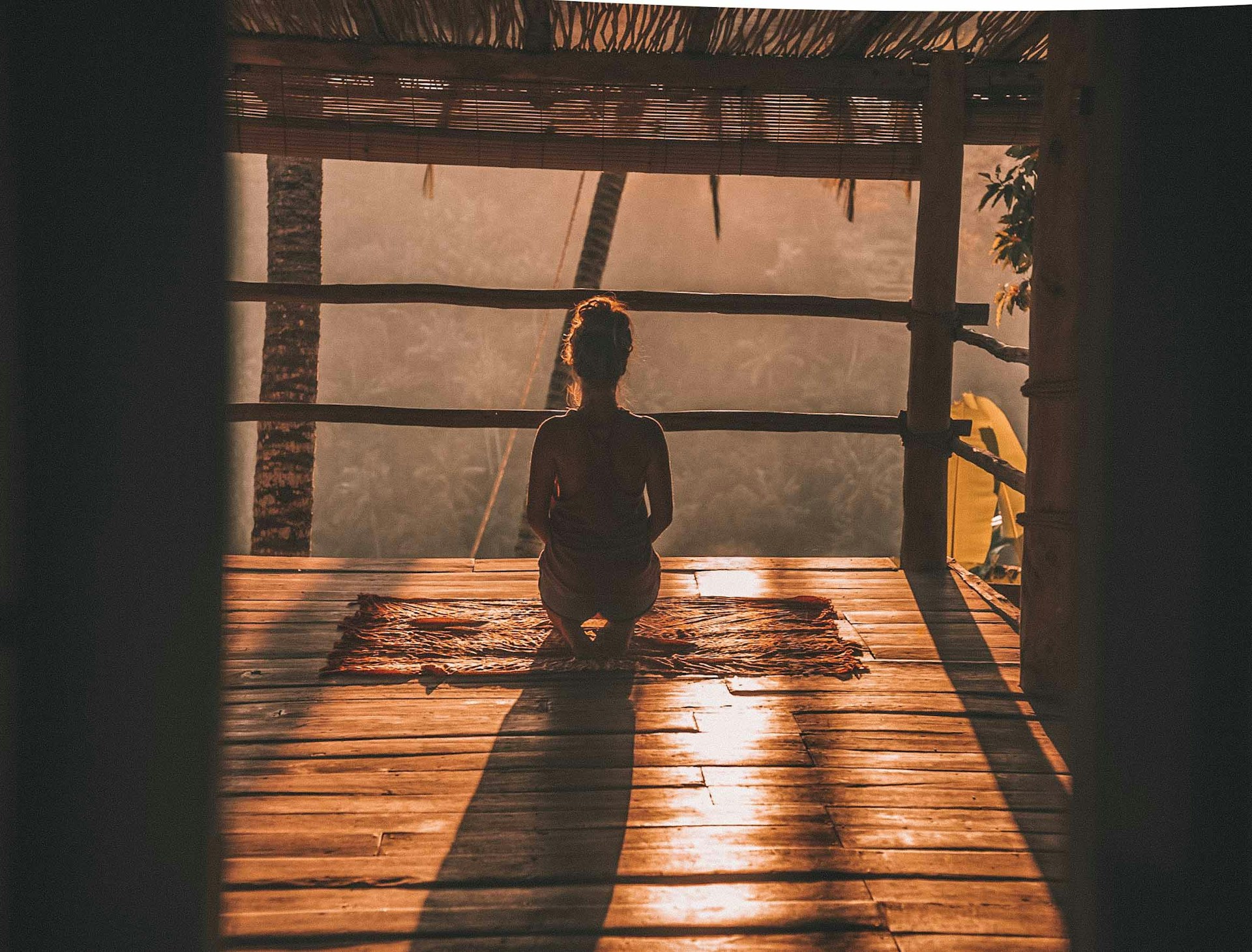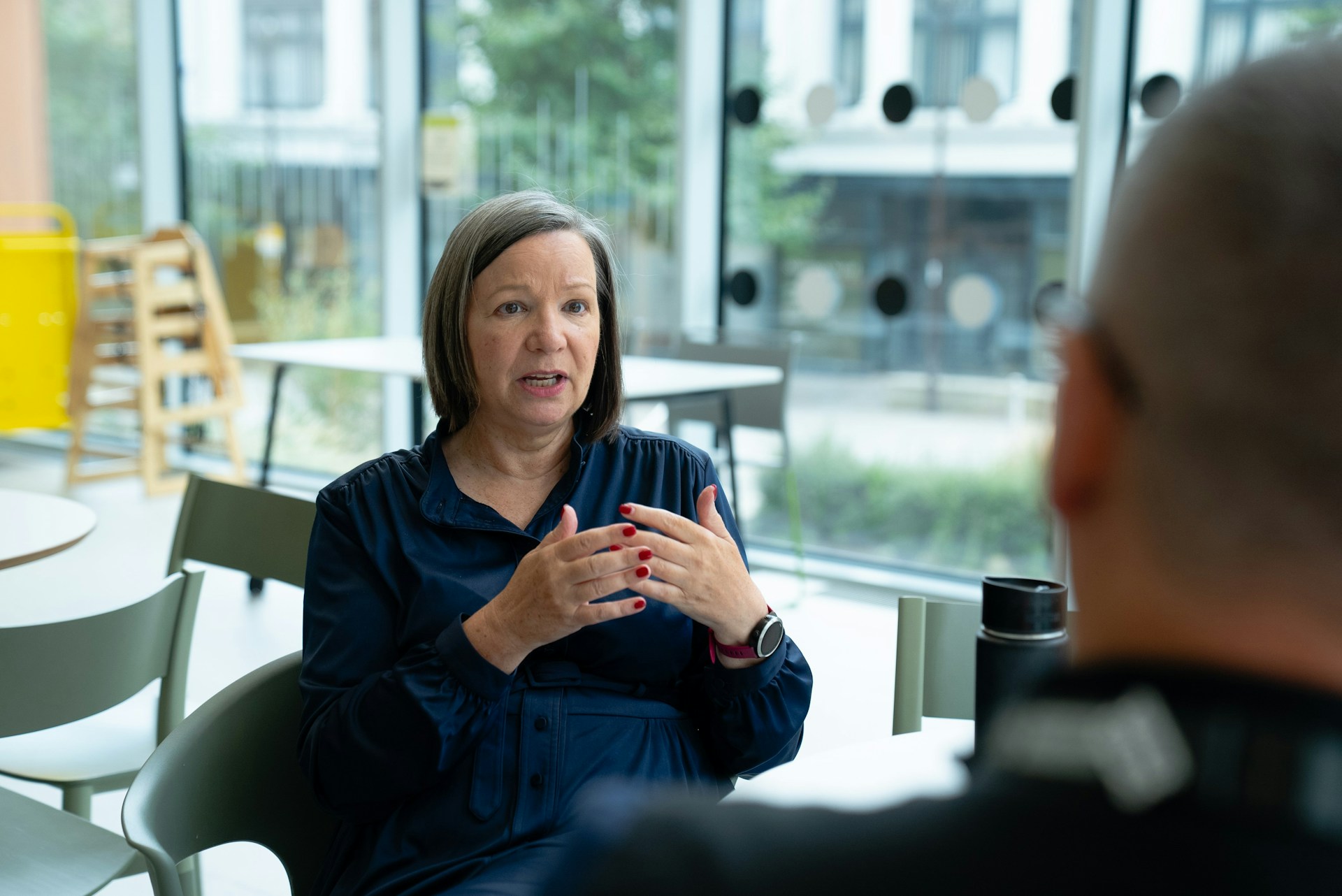Do this before your next big decision

In 1974, a 19-year-old Steve Jobs boarded a flight to India. He wasn’t chasing a business deal, a funding round, or the next big thing. He was looking for clarity. For several months, he wandered through villages, barefoot and broke, exploring spiritual teachings, meditating, and searching for something that Silicon Valley couldn’t give him: inner direction.
When he returned to California, he wasn’t just changed — he was aligned. What followed was the founding of Apple, a company built not just on brilliant engineering but on a design philosophy inspired by Zen minimalism, presence, and intuition.
That trip — unconventional, arguably impractical, is now considered a turning point in the life of one of the world’s most influential entrepreneurs. It’s also a case study in the often-overlooked strategy that fuels founder success: retreat.
When Hustle Becomes a Hamster Wheel
Founders are wired to build. They’re taught to go fast, stay lean, and always be shipping. But at some point, the very drive that launches a company becomes the force that runs it off-course.
Startups aren’t just fragile because of markets or competition. They’re fragile because the person driving the vision is often exhausted, overwhelmed, and out of touch with the big picture.
Ask any founder who’s scaled a company past its first few years, and they’ll tell you: the real challenge isn’t starting — it’s staying aligned. That’s where retreat comes in. Not as a luxury, but as a leadership necessity.
The Retreat as a Strategy, Not an Escape
To the outside world, a retreat may look like a glorified vacation. But to the founder who desperately needs space to think, it’s the most strategic time investment they can make.
A retreat is not about running away from your company. It’s about stepping away from the noise so you can return with clearer eyes and stronger convictions.
Steve Jobs wasn’t the only founder who understood this. Ray Dalio, founder of Bridgewater Associates — one of the most successful hedge funds in the world — built his entire decision-making framework around regular periods of reflection and meditation. In his book Principles, he notes:
“Meditation, more than anything in my life, was the biggest ingredient of whatever success I’ve had.”
Dalio didn’t just retreat for self-care; he retreated to sharpen his ability to think independently, challenge his own beliefs, and stay emotionally balanced in high-stakes decisions.
A Founder’s Greatest Asset: Mental Clarity
Most entrepreneurs assume their most valuable assets are capital, team, or product. But long before those things matter, the founder’s mental clarity determines the company’s trajectory.
Clarity affects:
- The quality of decisions
- The way you lead your team
- Your ability to pivot without panicking
- How you resolve internal conflicts
- And most critically, your vision — the North Star everyone depends on
When founders are deep in execution mode, clarity becomes the first casualty. Meetings pile up. Emails multiply. Fires need to be put out. Eventually, they’re not leading the company — they’re reacting to it.
It’s in this state that retreats become essential.
What Happens When Founders Don’t Step Back
The downside of not retreating shows up quietly at first: fatigue, second-guessing, and stagnation. But left unchecked, it becomes dysfunctional — poor decisions, burned-out teams, and toxic culture.
Research by Harvard Business Review has shown that leaders who take time for strategic reflection are significantly more effective than those who don’t. Yet, fewer than 10% of founders build this into their routine.
When you stay in execution mode too long, your thinking narrows. You start optimizing for today’s problems instead of tomorrow’s potential.
Without distance, you can’t see the system. Without silence, you can’t hear your intuition. Without solitude, you can’t reconnect to the “why” behind your work.
Founders Who Took a Step Back — and Leapt Forward
Phil Knight – The Writing Retreat That Became a Legacy
After decades of building Nike, Phil Knight didn’t go out with a product launch or a grand farewell tour. He disappeared.
He spent time alone, writing Shoe Dog, a memoir that became not just a book but a cathartic retreat. Through storytelling, Knight processed the chaos of his entrepreneurial life and gained closure.
In interviews, Knight has described writing the memoir as one of the most fulfilling and clarifying experiences of his life. He reconnected with what mattered most — not market dominance, but meaning.
Oprah Winfrey – Silence as a Success Ritual
Oprah has long talked about her habit of taking silent retreats, sometimes for days at a time.
“I have to have moments of silence and reflection to center myself. That’s how I stay connected to my inner voice,” she once said in an interview.
Even with a media empire under her name, Oprah prioritizes retreat — not as an indulgence, but as fuel. The clarity gained in those quiet moments feeds directly into her creativity and leadership.
Elizabeth Gilbert – Creating Space for Reinvention
After the massive success of Eat, Pray, Love, Elizabeth Gilbert felt lost in the expectations that followed. So she did what few authors with a global bestseller would do: she retreated again.
She stepped away from media, from deadlines, and even from her own creative identity. In that space, she gave birth to a new book — Big Magic — which became a powerful manifesto on creative living.
Her lesson to entrepreneurs is this: the pressure to follow up success with more success can crush originality. Only space allows for reinvention.
What a Retreat Can Look Like
The word “retreat” conjures images of mountaintops and yoga mats. But a founder’s retreat can take many forms — and doesn’t require a passport.
It could be:
- A weekend alone in a cabin with no phone or laptop
- A solo road trip with long drives and handwritten journals
- A week at a monastery or silent retreat center
- A 3-day Airbnb stay near the coast with books, ideas, and whiteboards
The goal isn’t relaxation — it’s realignment.
It’s not the setting that matters most, but the intention behind it. You’re stepping away not to escape, but to reconnect with the most important stakeholder in your company — yourself.
The Questions That Drive Breakthroughs
Many founders resist retreating because they fear what they’ll find in the silence. But it’s precisely in that space that the most important questions emerge:
- Am I building something I still believe in?
- What would I do differently if I wasn’t afraid?
- Where is my energy going — and is it where it should?
- What’s the one thing I’ve been avoiding that needs my attention?
These aren’t questions that surface in Slack threads or Zoom calls. They demand silence, presence, and courage.
Retreat Isn’t Time Off — It’s Vision Work
In traditional business thinking, stepping away from work is seen as a risk. In reality, it’s one of the highest-leverage moves a founder can make.
Taking time to reflect isn’t a weakness — it’s leadership.
Just as athletes rest between sprints to improve performance, founders must pause to sustain excellence.
Google’s own data from Project Oxygen shows that founders who prioritize psychological clarity and vision alignment lead healthier, more successful companies. Retreats are one of the few tools that help accomplish both.
The Retreat-Return Loop
The value of a retreat doesn’t lie just in the retreat itself, but in how you return.
When founders come back from intentional solitude, they often bring with them:
- Clearer priorities
- Recommitted vision
- Healthier boundaries
- New creative ideas
- A calmer, more present leadership style
This “retreat-return” loop becomes a rhythm — a cadence of stepping back to leap forward.
It’s how startups stay human. How vision stays alive. And how leadership evolves without crumbling.
Final Thoughts: The Paradox of Forward Momentum
In the startup world, the pressure is always forward. Scale fast. Launch quickly. Move before someone else does.
But sometimes, the best move isn’t to sprint ahead — it’s to stop and listen.
Steve Jobs found part of Apple’s DNA not in Cupertino, but in Indian villages and Zen temples. Oprah found the heart of her brand not on screen, but in silence. Ray Dalio scaled a $150 billion fund not by shouting louder, but by thinking deeper.
So the next time you feel stuck, burned out, or simply unsure, don’t look for another growth hack. Find a cabin, a coastline, or a quiet corner of the world.
Because, sometimes, the best way to scale your company… is to retreat from it.

square.jpg)










